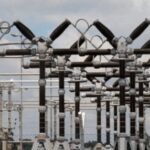The World Bank has forecasted that Nigeria’s Gross Domestic Product (GDP) will experience an average growth rate of 3.6% annually between 2025 and 2026. This projection was highlighted in the World Bank’s latest Global Economic Prospects report for Sub-Saharan Africa (SSA).
The report noted that Nigeria’s GDP growth was estimated to rise to 3.3% in 2024, primarily fueled by the services sector, with notable contributions from financial and telecommunications industries.
“Macroeconomic and fiscal reforms have bolstered business confidence,” the report stated. It also noted that the Central Bank of Nigeria’s tighter monetary policy helped combat rising inflation and a weakening naira. Additionally, the fiscal deficit narrowed as revenues surged following the removal of the implicit foreign exchange subsidy and enhanced revenue collection measures.
The World Bank emphasized that inflation, following its expected decline due to monetary tightening in 2024, would support consumption growth and reinforce the services sector’s role as the primary driver of economic activity.
Oil Production and Broader Economic Impacts
While oil production is projected to increase during the forecast period, it is expected to remain below the Organization of Petroleum Exporting Countries (OPEC) quota. This suggests that per capita income growth will remain modest, limiting the scope for substantial economic improvement for individuals during this period.
The report also detailed broader economic trends across Sub-Saharan Africa. Growth in the region climbed from 2.9% in 2023 to an estimated 3.2% in 2024, albeit lower than projections made in June. This slower growth was attributed to challenges such as the ongoing conflict in Sudan and country-specific hurdles affecting recovery efforts.
Growth across Sub-Saharan Africa is expected to average 4.2% in 2025–2026, driven by improved economic prospects in industrial-commodity-exporting countries, including major economies in the region.
Challenges and Risks
Despite the optimistic projections, several risks remain. High levels of government debt and elevated interest rates have reduced fiscal flexibility, prompting governments to implement fiscal consolidation measures. However, financing needs remain significant.
The report warned that weaker global growth, trade policy uncertainties, a slowdown in China, and escalating conflicts—such as those in Sudan and the Middle East—could exacerbate food and energy price inflation, impacting economic stability. Additionally, climate-related events could pose further risks to growth in the region.
Regional Insights
Combining the performance of Nigeria and South Africa, the region’s two largest economies, the report noted that their growth averaged 2.2% in 2024. This was supported by improved electricity supply in South Africa and increased oil production in Nigeria. Growth in other countries within the region reached 4.0%.
The World Bank also projected that easing inflation could prompt a gradual reduction in policy interest rates, potentially boosting private consumption and investment in many Sub-Saharan African economies. However, limited fiscal space due to high debt and borrowing costs will likely constrain government spending.
“Fiscal deficits are expected to narrow over time, with non-resource-rich countries closing gaps and commodity-exporting nations achieving surpluses,” the report concluded.
This outlook highlights the interplay of reforms, economic conditions, and external risks in shaping Nigeria’s and the broader region’s economic trajectories.



